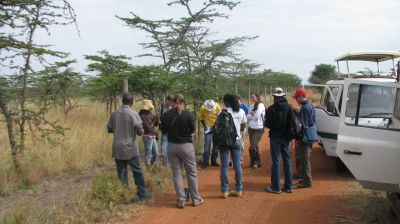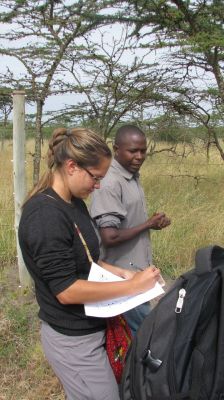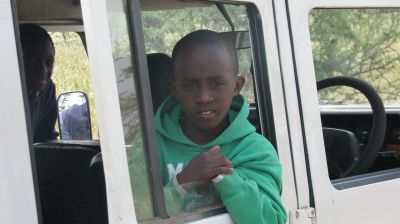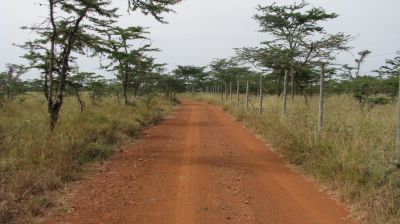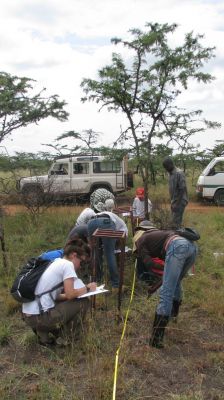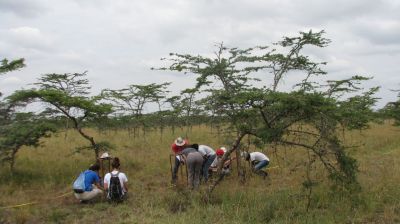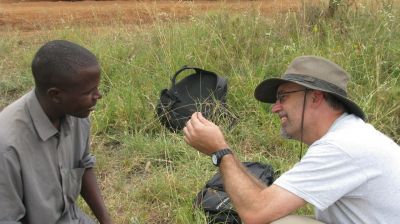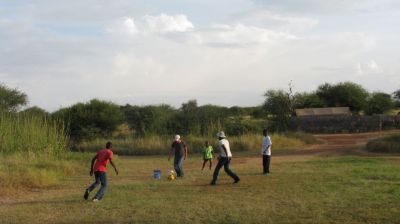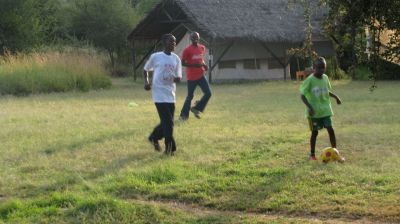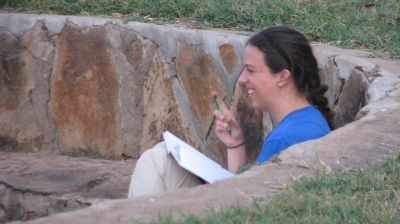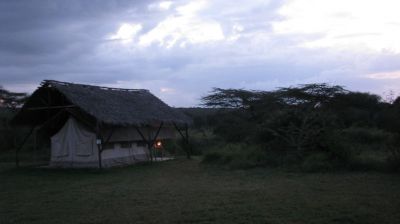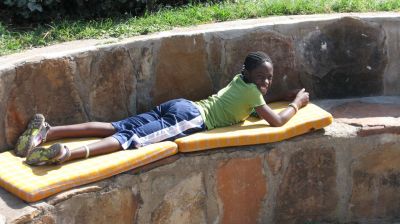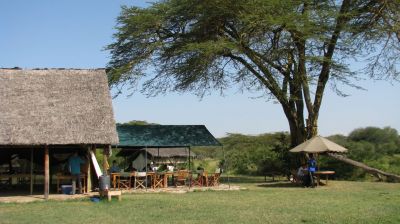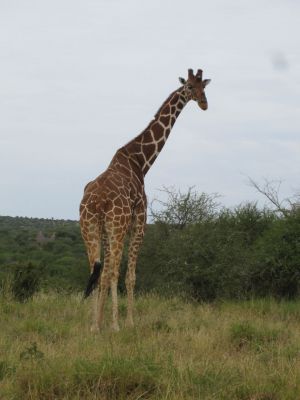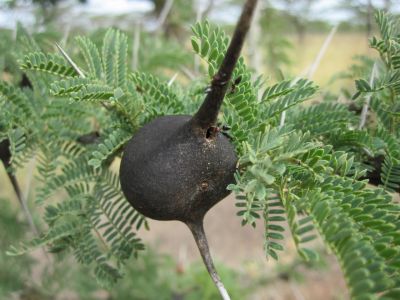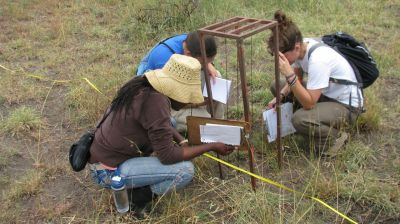
Our group woke up to another beautiful morning at the Mpala River Camp where birdcalls are numerous and constant. Sleeping in a tent and hearing these birds in the morning made it surprisingly easy for me to wake up by 6:30 this morning. We started our morning routine with a reflection from Hannah (one of the students from the University of Nairobi) and Mandy gave us some new interesting information about giraffes. Then we drove along the dirt road away from the river camp to start some data collection in the field. Duncan, who has done ongoing research with Ryan, introduced us to the KLEE (Kenya Longterm Exclosure Experiment) and some of the research that has been done there in the past. Although learning new data collection methods and scientific names can be overwhelming at first, it was exciting to get out in the field and become more familiar with our surroundings.
Anytime we drive somewhere we have the privilege of seeing lots of different animals such as giraffe, zebra, impala, and many different kinds of birds. Many of us have also enjoyed learning the Swahili names for many of the animals we come across and are grateful to have four Kenyan students in our class that are all patient and happy to teach us. (As a humorous side note: In addition to gaining vocab knowledge, we were curious to know what they think about The Lion King, but none of them are familiar with it. After having them listen to “The Circle of Life,” Hannah was able to tell us that it is Zulu, not Swahili, that’s used in the song).
Other more meaningful discussions have been common and very influential and helpful in our discussions on the ecology and cultural practices of the area. We had a late afternoon lecture and discussion on research articles that talked about positive and negative interactions between people, livestock, wildlife, and plants as well as effects of pastoralism. Complexity in systems and defining certain interactions as both positive and negative were common themes.
Our evening was spent by sharing stories, updating personal identified species lists, and sitting around the fire giving back rubs. It’s been a good first two full days and I think many of us are still coming to the realization that we are actually in Kenya. It has been wonderful to be immersed in the savannas and we’re excited about the knowledge we’ll gain in the next few weeks.
– Ellie Schertz, Senior Biology major, Goshen College





